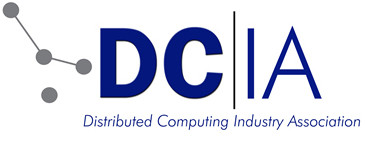In This Issue
- Cloud Wave of Future
- IoT Success Stories
- EU-US Data Transfer
- Report from the CEO
- Internet Privacy Plan
- Cybersecurity Invest
- Verizon Cloud-Based
- LeaseWeb & NetApp
- Telefonica Brasil Up
- NetApp’s Data Fabric
- Cloud App Migration
- Innovation Drives IT
- IoT Edge Computing
- Geospatial Big Data
- Hadoop vs Spark?
- Brexit Cybersecurity
- Coming DCIA Events
Cloud Computing Is the Wave of the Future
Excerpted from ChannelWorld Report by Sejuti Das
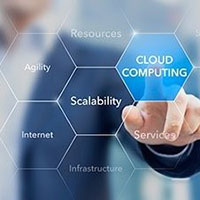
ChannelWorld India spoke to the winners of the Cloud Champions of 2016, to understand key shifts that are happening in the cloud space, and how these are affecting the partner ecosystem.
Instituted in 2009, the ChannelWorld Premier 100 Awards have become an industry benchmark for excellence in the Indian IT channel space.
In addition to recognizing the 100 best solution providers, SIs, VARs, and ISVs of the country, Channelworld Premier 100 also recognizes channel players who are actively evangelizing and understanding new technologies like cloud, and tackling the myriad challenges that arise in this emerging space.
We honor them with the Cloud Champion awards.
Every year, Premier 100 Cloud Champion Awards highlight the pursuit of excellence and perseverance in the field of cloud computing. This year, Cloud Champion award recognizes five partners who have excelled in delivering cloud solutions.
Check out the full list of the 2016 Cloud Champion Award winners… Read More
Success Stories from the Emerging IoT Market
Excerpted from Sitepoint Report by Joshua Kraus

A term describing the interconnectivity of multiple physical devices via the World Wide Web, the internet of things (IoT) is often thrown around as a buzzword or hyped as a flashy trend.
But as of 2016, the importance of the IoT can no longer be ignored.
The same technology that can be used to flush a toilet every time a toaster turns on can also be used for things like improving prenatal health care, preventing sports-related injuries, and enhancing our indoor air quality.
The following IoT products go beyond financial success by proving just how integral the IoT is becoming to our health and wellness.
1. BabyBe: When babies are born prematurely, they are often taken to a neonatal intensive care unit and put into an incubator.
This reduces the risk of infection and helps maintain hydration.
It’s essential for the baby’s survival, but there is a cost: The mother is unable to physically interact with her child… Read More
Europe to Approve EU-US Data Transfer Pact
Excerpted from NY Times Report by Mark Scott

European officials are expected to approve a new agreement with the United States aimed at helping companies like General Electric and Google, among others, move online data between the two regions despite concerns about how the digital information of Europeans may be retrieved by the American government.
The decision, according to a draft of the agreement obtained by The New York Times, is based on renewed assurances by United States officials that Europeans’ data will be sufficiently protected when it is transferred outside the 28-member bloc.
Many of Europe’s national privacy regulators had raised concerns that the new agreement, known as the EU-US Privacy Shield, did not go far enough to protect Europeans’ fundamental rights.
They said the bulk collection of Europeans’ data by United States and European intelligence agencies failed to comply with the region’s data protection rules.
But in the lengthy document, with several letters from American officials, including new explanations of United States privacy safeguards by Robert Litt, General Counsel of the United States Office of the Director of National Intelligence, the European Commission said it was satisfied that Europeans’ data would not be unfairly used or retrieved by American intelligence agencies… Read More
Report from DCIA CEO Marty Lafferty
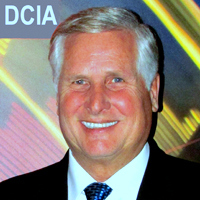
The Democratic presumptive Presidential nominee Hillary Clinton last week released a platform addressing three issues of greatest concern to the DCIA: internet connectivity, cybersecurity, and computer sciences education.
The platform calls for every household in America to have access to broadband by 2020, student loan deferment for young entrepreneurs, and support of the Obama administration positions in such controversial areas as network neutrality.
This week, the DCIA joins with technology sector leaders in requesting that Republican presumptive Presidential nominee Donald Trump make his views known on these concerns.
We previously noted that for very different reasons, neither candidate was viewed by analysts as the most digitally effective individual whom their party had to offer.
Nevertheless, we’re pleased at this point that the Democratic Party has laid out its policy agenda for technology and innovation and urge the Republicans to follow suit.
At a time when internet-based companies are accelerating their lead of the nation’s economic growth, when cybersecurity threats pose greater potential dangers than ever before, and when the need for skills to continue technological advancement has never been greater, voters deserve the chance to assess the differences between the candidates side-by-side.
Knowing where the nominees stand on such fundamental industry matters as incentivizing innovation, protecting consumer privacy, and improving online security – before their parties’ conventions – would be helpful.
Donald Trump’s business experience combined with his knowledge of social media should provide a contrast with certain of Hillary Clinton’s positions that would help undecided voters make decisions even as the so-called “tech vote” becomes more and more important with each election cycle.
And this should go far beyond their well-known opposing views on the Trans-Pacific Partnership trade deal.
One would expect that Trump would like to make amends with the technology sector after initial clashes with Apple and Amazon, as well as anti-industry views on intellectual property and encryption. Share wisely, and take care.
An Internet Privacy Plan That Works for Everyone
Excerpted from NCTA’s Platform Blog
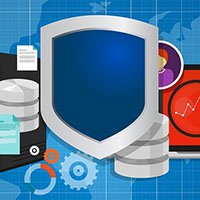
Almost everyone agrees that the internet is a phenomenal success that has changed our lives in many important and entertaining ways.
Superfast networks built and continually upgraded by internet service providers (ISPs) have provided consumers with an exciting platform to find just about any content or experience imaginable.
When taking a closer look at why the internet has thrived, privacy has been a critical issue.
For ISPs, privacy has been a top priority for more than two decades as these companies have worked hard to successfully preserve and protect the private data of consumers.
And just like everyone else in the internet ecosystem, ISPs and content developers have been governed by the Federal Trade Commission’s (FTC) privacy policies.
Under the FTC’s regime, which has resulted in some significant enforcement actions when violations occur, the internet has thrived under uniformity… Read More
EU Approves New Investment in Cybersecurity
Excerpted from The Verge Report by Jacob Kastrenakes
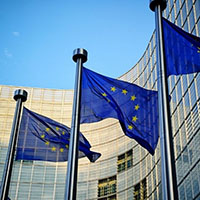
The European Commission signed an agreement today that’ll have member states funding and working together with private groups on cybersecurity.
The specifics are a little vague right now, but the gist is this: the EU has put together 450 million euros, which will be distributed in the coming years to businesses, universities, and other researchers who are interested in investigating pressing cybersecurity problems.
The commission says the measure is designed to “nurture cybersecurity industrial capabilities and innovation in the EU.”
The recently founded European Cyber Security Organization will work together with everyone from tech companies to local governments to determine where the funding should go.
The current plan is for the partnership to put out its first call for proposals in early 2017.
The commission expects that, throughout the course of this partnership, private sources will end up investing in cybersecurity “three times more” than the initial public contributions, for a total of up to 1.8 billion euros in new investment by 2020… Read More
Verizon Cloud Modernizes Champion Realty
Excerpted from Financial News Report by Gulli Arnason

Verizon enterprise solution’s virtual communications express service, powered by BroadSoft, has provided Berkshire Hathaway affiliate Champion Realty with a range of services to enhance productivity, communications, and collaborations for its workforce, the company said.
With Virtual Communications Express, a cloud IP PBX and mobile unified communication and collaboration alternative to on-premises telephony systems, Champion Realty is able to operate more efficiently across its eight branch offices and more than 250 sales associates.
Leveraging Verizon ´s service, Champion Realty is experiencing cost, operational and capabilities benefits, including access to a range of advanced communications services and minimal upfront capital investment.
Verizon Communications, headquartered in New York City, generated nearly $132 billion in 2015 revenues.
Verizon provides 112.6 million retail connections nationwide.
The company also provides communications and entertainment services over a fiber-optic network… Read More
LeaseWeb Accelerates Delivery with NetApp Flash
Excerpted from MyHost News Report
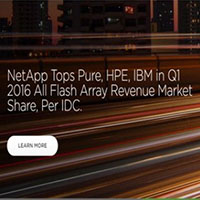
“LeaseWeb can offer a level of service that often only large enterprises can afford to deploy.”
“With our current public cloud offering built on NetApp, we can take the extra step that we need to satisfy the customer’s needs,” said Robert van der Meulen, Cloud Manager at LeaseWeb.
“The continuous operation, stability, and great performance that our current infrastructure offers is a winning combination.”
LeaseWeb, one of the world’s largest hosting brands, offers a wide variety of cloud hosting solutions, bare metal servers, CDN services, and more.
The company operates with the customer at the heart of its operations.
As part of its public cloud strategy, LeaseWeb wanted to accelerate infrastructure delivery to enable customers to place their mission-critical workloads in the cloud.
LeaseWeb needed an enterprise-class solution offering low latency, reliability, constant throughput, zero downtime, and minimal administrative overhead… Read More
Telefonica Brasil Digital Revenue Outpaces Overall Growth
Excerpted from Reuters Report by Ana Mano
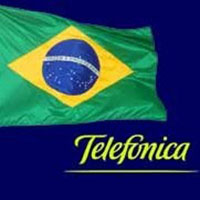
Telefonica Brasil, the country’s largest telecom operator, sees revenue from digital services growing faster than overall sales as the company moves away from a model based on offering voice and internet connection.
The Brazilian unit of Spain’s Telefonica says revenue from digital services including video streaming and cloud storage already represented 1.9 billion reais ($569.24 million) in 2015, or about 5 percent of net revenue.
That reflects rapid growth for a segment that “started from scratch” less than three years ago, according to Ricardo Sanfelice, the Division’s recently appointed Vice President.
If trends continue, voice revenue should continue shrinking as a share of revenue from around half currently to about a quarter of sales in five years, Sanfelice told Reuters in a telephone interview.
Digital services at Telefonica Brasil grew 15 percent last year, he said, outpacing overall revenue growth of 5 percent.
Although he declined to give firm forecasts, Sanfelice said “there is no reason” for digital services not to keep expanding at the same pace… Read More
NetApp’s Data Fabric and Strategic Solutions Importance
Excerpted from Market Realist Report by Adam Rogers
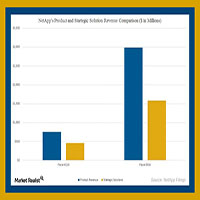
NetApp believes that the data fabric is the future for data management.
The combination of services, connectivity, and endpoints is a fabric.
NetApp has a number of data fabric offerings, including Clustered Data ONTAP, SolidFire, and StorageGRID systems. Data fabric helps to connect the end points of these products, which help enterprises to communicate effectively.
According to a research paper by NetApp, data fabric “enables customers to respond and innovate more quickly because data is free to be accessed where it is needed most.”
It enables enterprises to focus on revenue growth, customer experiences, and other service and product offerings.
NetApp management has stated that the company is focused on its data fabric strategy and strategic solutions. These form the foundation of how NetApp enables customer success in the data-powered digital era.
In fiscal 4Q16, the strategic solutions segment accounted for 61% of the net product revenue. In fiscal 2016, strategic solutions accounted for 53% of the net product revenue and grew 21% year-over-year… Read More
How to Ensure Successful Application Migration to the Cloud
Excerpted from Computer Business Review Report by Ambrose McNevin
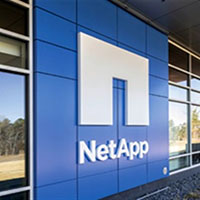
CBR spoke with NetApp chief technologist about how to ensure successful cloud migration. CBR: What are the key considerations from NetApp’s view for migrating apps to the cloud?
Grant Caley, Chief Technologist, NetApp: The first thing is to understand what you want to migrate to the cloud.
Some companies are on a strategy to move everything to the cloud and that’s a bold strategy.
Because if you are going to do that you have to consider those applications which are cloud ready and those which are legacy and which may not be. Among the considerations are which are going to be cost effective to move to the cloud.
Which applications may have security and risk issues associated with them. Are there compliance considerations for example in the finance industry.
These are just some and there are many different aspects to consider when moving to the cloud. CBR: Are we talking about application complexity, age, use?
GC: You can pretty much define that any legacy app in use today is probably not cloud ready in some aspect… Read More
Innovation Will Drive Growing IT Budgets and Staff
Excerpted from Baseline Magazine Report by Dennis McCafferty

IT budgets and staff are expected to grow this year, according to a recent survey from the Hackett Group.
The accompanying report, “The CIO Agenda: Balancing Risk, Cost and Innovation,” explains that innovation is driving much of the spending increases, as many executive leaders consider that their top strategic priority.
To achieve business objectives, these leaders said, IT must have the resources required to improve processes, boost analytics-focused capabilities and drive a digital transformation.
Meanwhile, the tech department also needs to help their organization reduce risks, especially those related to IT issues such as network breaches.
“Technology’s strategic role in the business is dramatically expanding,” said Scott Holland, principal and global IT advisory practice leader for the Hackett Group.
“IT must truly transform itself to be effective in its new role, as it is being asked to develop and implement digital business transformation initiatives that dramatically change the way companies go to market… Read More
Edge Computing In the IoT: An Analytics Model
Excerpted from Business Insider Report by Sarah Kocianski
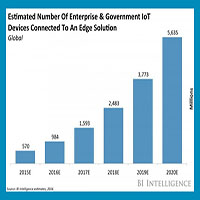
For businesses, the most important benefit of the IoT will be the data generated by billions of new smart sensors and devices.
The “Internet of Everything” – all of the people and things connected to the internet – will generate 507.5 zettabytes (1 zettabyte = 1 trillion gigabytes) of data by 2019, according to Cisco.
Managing, sifting through, and analyzing so much data will be a massive challenge for organizations.
But that data analysis will be essential if IoT initiatives are going to provide the insights to drive greater productivity and revenues.
Right now, most of this data management and analysis is performed in the cloud or enterprise data centers.
However, several IoT technology providers are promoting a different model called edge computing, or “fog computing,” for the IoT.
In an edge computing model, sensors and connected devices transmit data to a nearby edge computing device… Read More
Geospatial Big Data Processing with Distributed Computing
Excerpted from PeerJ Preprints Report by Angela Olasz and Binh Nguyen Thai

In recent years, distributed computing has reached many areas of computer science including geographic and remote sensing information systems.
However, distributed data processing solutions have primarily been focused on processing simple structured documents, rather than complex geospatial data.
Hence, migrating current algorithms and data management to a distributed processing environment may require a great deal of effort.
In data processing, different aspects are to be considered such as speed, precision or timeliness.
All depending on data types and processing methods.
Available data volume and variety evolving as never before which instantly exceeding the capabilities of traditional algorithm performance and hardware environment in the aspect of data management and computation.
Augmented efficiency is required to exploit the available information derived from Geospatial Big Data… Read More
Hadoop vs Spark: Which is Right for Your Business?
Excerpted from Report by Scott Carey
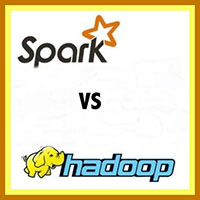
As companies work with more and more data, choosing between the open source big data frameworks Hadoop and Spark is increasingly important.
We break down the pros and cons of Hadoop vs Spark, the vendors, customers and general uses of each.
First, it’s important to note that Hadoop and Spark are broadly different technologies, with different use cases.
The Apache Software Foundation, from which both technologies emerged, even places the two in different categories: Hadoop is a database, Spark is a big data tool.
In Apache’s own words, Hadoop is a “distributed computing platform”: “A framework that allows for the distributed processing of large data sets across clusters of computers using simple programming models.
It is designed to scale up from single servers to thousands of machines, each offering local computation and storage.
Rather than rely on hardware to deliver high-availability, the library itself is designed to detect and handle failures at the application layer… Read More
Will Brexit Hurt International Cybersecurity?
Excerpted from Slashdot Report
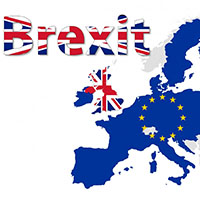
The Brexit shock continues to reverberate throughout the global economic and policy worlds.
Andrea Limbago from the security company Endgame responds to a poll showing that most security professionals have concerns about Brexit:
Will it weaken cybersecurity because of additional bureaucratic hurdles to information sharing with the EU, as well limited cross-national collaboration in fighting cyber-criminals?
There is also concern about the possibility of a brain drain – in-demand security talent pool fleeing the UK – which could increasingly impact security and data protection.
Limbago suggests tech workers in Britain’s financial sector may feel the impact, “With Bitcoin surging and the pound dropping, London’s role as the financial hub is now threatened thanks to the Brexit, the rise of digital currencies, and the EU’s move toward greater digital integration.”
And there’s also the possibility of “a push for digital sovereignty and greater national control over the internet… Read More
Coming Events of Interest
Industry of Things World Europe — September 19th-20th in Berlin, Germany. IoT business models, new IoT markets and strategies, product lifecycle management, next generation data handling and value assessment, IoT organizational impacts, and IoT security issues.
EuroCloud Forum – October 5th-6th in Bucharest, Romania. The seventh annual EuroCloud Congress will be held for the first time in Romania. With the theme “Creating New Frontiers in European Cloud,” it will be the sector’s largest forum on the future of cloud in Europe.
Security of Things World USA — November 3rd-4th in San Diego, CA. The newest event in the DCIA’s partnership with weCONECT Group has been designed to help you find pragmatic solutions to the most common security threats facing the IoT.
Government Video Expo — December 6th-8th in Washington, DC. GVE is the East Coast’s largest technology event for broadcast and video professionals, featuring a full exhibit floor, numerous training options, free seminars, keynotes, panel discussions, networking opportunities, and more.
